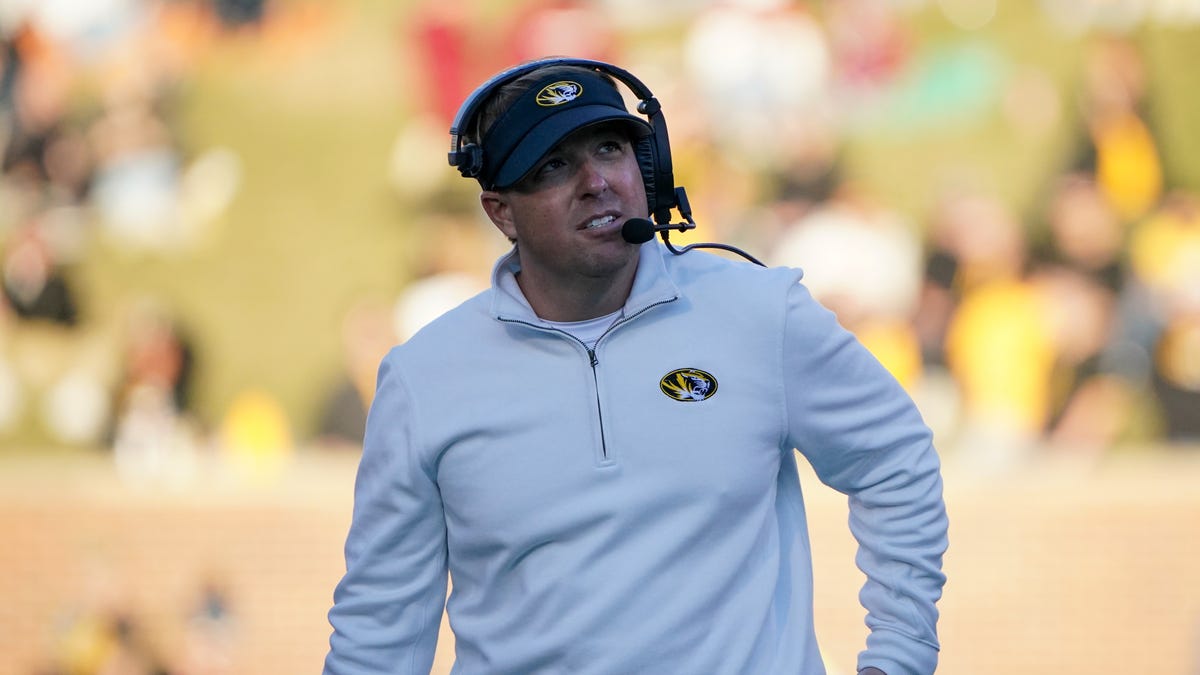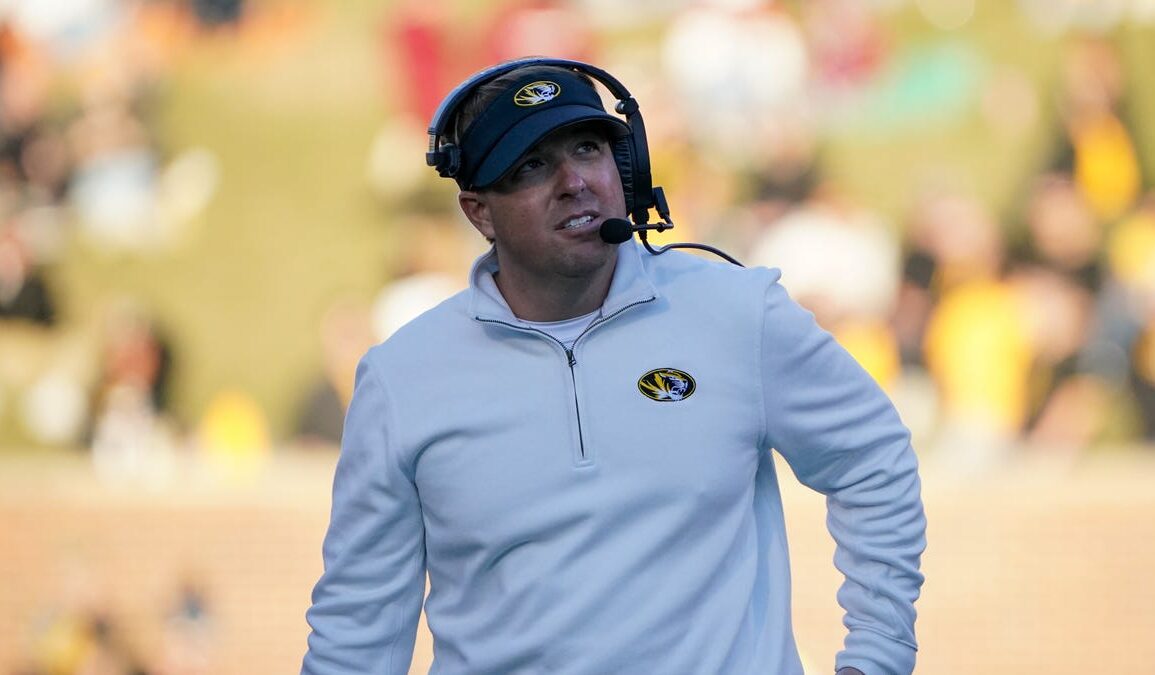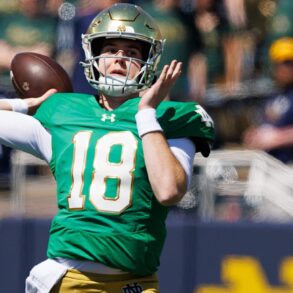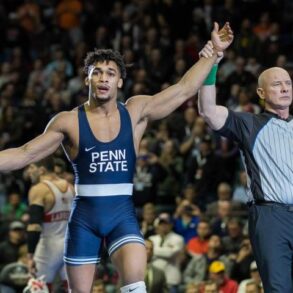
Sandwiched in the middle of a long, impassioned answer from Eli Drinkwitz about the changes coming to college athletics via revenue sharing, the coach offered a punchy approximation that a fair share of fans, and writers, ought to be able to relate to.
“I don’t know,” the Missouri football coach said, “what the crap is going on.”
The revenue-sharing era of college athletics is seemingly imminent, as California judge Claudia Wilken is expected to approve a landmark settlement in the near future after opening the final hearing in the NCAA vs House case Monday.
As reported by USA Today’s Steve Berkowitz — and the details that have brought around the latest batch of caveats and confusion — there may be some alterations to the language from the original proposition, including objections concerning immediate roster limits and future athletes being bound to the impending agreement.
But, all expectations are that Wilken will approve the settlement and universities will soon be allowed to distribute $20.5-million worth of revenue with student-athletes. Mizzou athletics, which is expected to opt in at the full amount, released an interview with AD Laird Veatch addressing the potential impact last Friday.
Drinkwitz has been outspoken in the past about the lack of a governing presence in college football, frequently posting the rhetorical question, “who’s in charge?”
The Mizzou coach’s response, more often than not, in the face of the ever-shifting landscape of college athletics at large has been to adjust as fast as possible and proceed with the information available.
That reasoning also helps explain why Drinkwitz isn’t planning on following a recent trend across the sport.
Some teams — like USC and Oklahoma and, perhaps most notably, Stanford — have hired general managers to help with the business side of modern college football roster building in recent months. The GMs, essentially, are operating in the same fashion as those at professional sports organizations.
Mizzou, at least not in the immediate future, will not be one of the teams to add a general manager. There are a couple reasons for that.
One: Drinkwitz quipped “some places, the GM’s firing the head coach, so I don’t necessarily know if I want to hire somebody that can fire me; that’d be dumb,” which may be a nod to newly appointed Stanford’s Andrew Luck, who promptly fired football coach Troy Taylor after being named general manager at his alma mater.
Two: “I don’t know what the rules are,” Drinkwitz said. “I don’t know. If that’s the structure that we go down because of the new settlement that’s in place, then, yeah, awesome. I think that’s something that would make a lot of sense. If there was a partner that needed to partner with me and handle a little bit more of the business structure side of it — great. But until I really know what that looks like … not yet.”
While the Tigers will avoid a GM until the timing makes it logical, revenue sharing is a shift that Drinkwitz and Co. can’t avoid. His football program, like football programs at a majority of Power-conference institutions, stands to receive the lion’s share of the money to distribute among the players.
But, as Drinkwitz again pointed out, there is still a lot to sort, and not many clear and obvious figureheads to do the sorting. And not for the first time with change in the air, he pleaded into the void for somebody to protect college athletics.
The precise parameters of the upcoming changes won’t be settled until Wilken makes an official ruling. Just this week, the proposed settlement appears to have shifted from roster limits to phased-in roster limits.
For now, the Tigers are going to try and adjust when that occurs. And Drinkwitz didn’t just shrug the topic off until it’s resolved. This time, he delivered a full-fledged plea for college athletics.
“I spent a ton of time trying to figure out the new revenue-share system,” Drinkwitz said, “and how are you going to divide the money and the cap, and what are we going to do for NIL, and how do we get to 105 (players). And then yesterday the judge says we may grandfather in roster limits. So, like, I don’t know what the crap is going on. And, you know, you waste a lot of mental energy. … We told all our guys in December, you know, like, this is what we think the new framework is going to be, and now, if they go back to grandfathering it in, it’s just frustrating. … We’ll adapt. We’ll adapt to whatever they say.
Added Drinkwitz: “My hope is that we understand this is an unbelievable game. College athletics is a worthwhile fabric of the culture of the United States of America, not just football, not just basketball, not just revenue-generating sports, but also the Olympic sports — they all matter. And we need to have some sort of governing structure that doesn’t have a lawsuit every stinking day. You know? Like, I get it. But, I mean, we can’t have a lawsuit every single day that dramatically shifts the rules.
“So, we have to have some sort of protection so that we can move forward with a great game. … Please, please, please, whoever’s in charge — I don’t know who’s in charge; nobody knows who’s in charge — can we get some sort of structure in place that we don’t have to have lawsuits every single day that changes how we operate? So that we can continue this awesome opportunity that we have for these students to have scholarships to get an education, but also the joy that we can bring to the fanbase and to the people of this country.”
This post was originally published on this site be sure to check out more of their content.









